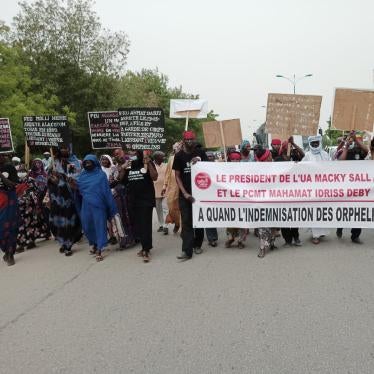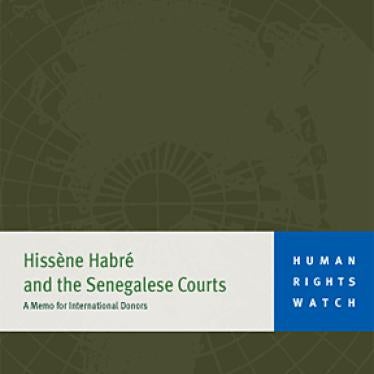Last Tuesday I got an excited e-mail from Reed Brody, an activist at New York's Human Rights Watch. For years Mr. Brody has poured his heart into one case: the prosecution of former dictator Hissène Habré of Chad. Mr. Habré's regime is believed to have murdered 40,000 political opponents and tortured or imprisoned countless others during his eight-year reign of terror in the 1980s. The e-mail read: “CONFIDENTIAL — It looks like the Belgian judge will FINALLY indict Habré this week or next on atrocity charges.”
It has been three and a half years since Belgian judge Daniel Fransen visited Chad (with Mr. Brody and me in tow) to gather evidence about Mr. Habré's crimes. Judge Fransen toured the ghoulish torture chambers and dungeons of the regime and heard heartbreaking testimony from the dictator's victims. Now, at last, he has brought down an indictment. On Sept. 29, Belgium issued an international warrant for Mr. Habré, who lives in comfortable exile in Dakar, the capital of Senegal.
This is the moment Mr. Brody has been waiting for. If Belgium manages to extradite Mr. Habré to face judgment for his atrocities, it will be sweet victory for the dictator's victims, who have fought a long, unlikely battle for redress. Even more important, it will be a big step forward for international justice.
Ever since former Chilean dictator Augusto Pinochet was detained in Britain in 1998 over human-rights accusations, activists like Mr. Brody have been striving to use international law to pursue dictators for their crimes. Mr. Brody worked on the Pinochet case, and ever since, has been trying to extend the “Pinochet precedent” to other unpunished dictators.
Last time I visited him in New York, Mr. Brody had a world map on his wall covered with pictures of dictators he would like to see behind bars, from Haiti's Jean-Claude Duvalier, pleasantly retired in France, to Ethiopia's Mengistu Haile Mariam, who is Robert Mugabe's guest in Zimbabwe. Mr. Habré is a smaller fish, all but unknown outside Africa. But putting him in the dock for his crimes would send a sobering message to tyrants the world over: You can hide, but you can't run.
If Belgium manages to put him on trial, it will be the first time a former dictator has be extradited by a third country to face human-rights charges. Mr. Brody is now pouring all his considerable energy into making that happen. When I called him yesterday, he was in the waiting room of Senegal's foreign minister, preparing to argue why the West African country should send Mr. Habré to Belgium.
It won't be easy. Mr. Habré robbed Chad of millions of dollars before he was deposed in 1990 and he has used the money to buy allies among Senegal's corrupt elite. Those allies are now spreading the word that this indictment is yet another example of rich, smug Europe picking on poor, forgotten Africa.
In fact, those behind this remarkable case are African. Mr. Brody is only the advocate for a brave group of Chadians who refused to accept that Mr. Habré would get away with his crimes. Their leader, Souleymane Guengueng, spent two years in the regime's prisons where he contracted dengue fever. When he finally got out, he vowed he would seek justice for those he had watched suffer and die.
Mr. Brody took up their case, sending a secret mission to Chad to gather evidence and then trying to get Mr. Habré prosecuted in Senegal. When that failed, some of the victims went to Belgium, which had a new “universal jurisdiction” law, since repealed, allowing prosecutors to go after torturers and mass killers abroad.
Everything now depends on Senegal. Mr. Brody is doing his best to get Mr. Habré extradited, by lobbying officials and speaking publicly about what the case means for the battle against impunity. But Senegal's President, Abdoulaye Wade, seems unlikely to do anything unless he feels some pressure from the international community.
If international law is to mean anything, it must be brought to bear against the very worst criminals among us, mass murderers like Mr. Habré. It is time for the world to speak up: Put Hissène Habré on trial.


